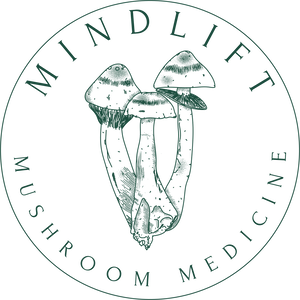Psychedelic therapy is a form of treatment that uses mind-altering substances such as psilocybin, LSD, and MDMA to promote psychological healing and well-being. While the use of these substances has been controversial, recent studies have shown promising results in treating a range of mental health conditions, including depression, anxiety, and post-traumatic stress disorder.
Psychedelic therapy is typically administered in a controlled and supervised setting, where a trained therapist guides the patient through their experience. The therapist may use techniques such as talk therapy or mindfulness meditation to help the patient process their thoughts and feelings during the psychedelic experience. The therapy may also involve pre- and post-session preparation and integration, where the patient can reflect on their experience and apply any insights gained to their daily life.
One of the most well-known psychedelic substances used in therapy is psilocybin, the active ingredient in “magic mushrooms.” In a 2020 study1 published in JAMA Psychiatry, researchers found that psilocybin therapy was effective in reducing symptoms of depression in patients with treatment-resistant depression. The study found that patients experienced significant improvements in mood and overall well-being, with some even reporting a sense of “mystical experience” or spiritual awakening during the therapy.
Another substance commonly used in psychedelic therapy is MDMA. In clinical trials, MDMA-assisted psychotherapy has shown promising results in treating PTSD. In a 2021 study published in Nature Medicine, researchers found that after three sessions of MDMA-assisted therapy, 67% of participants no longer met the criteria for PTSD. The study also found that the therapy was safe and well-tolerated by participants.2
While the use of psychedelic substances in therapy may sound unconventional, it has gained increasing attention and support from mental health professionals and researchers in recent years. The therapeutic benefits of psychedelics are thought to be related to their ability to temporarily alter brain function, leading to increased neuroplasticity and decreased activity in certain regions of the brain that may contribute to mental health conditions.
However, it’s important to note that psychedelic therapy is not without risks. The use of these substances can have unpredictable effects, and it’s essential that they are used in a controlled and supervised setting with trained professionals. Additionally, people with certain medical conditions or a history of mental health conditions may not be good candidates for psychedelic therapy.
At MindLift, we have begun working with psychedelic local to our area to offer support to their patients. In some cases we are offering our capsules at cost in order to facilitate the treatment of people with mental health issues without means. Stay tuned for more about our work with psychedelic therapy as well as how to get connected with psychedelic therapists near you.
Footnotes:
1: Davis, A. K., Barrett, F. S., May, D. G., Cosimano, M. P., Sepeda, N. D., Johnson, M. W., & Griffiths, R. R. (2020). Effects of Psilocybin-Assisted Therapy on Major Depressive Disorder: A Randomized Clinical Trial. JAMA Psychiatry, 77(4), 1-10.
2: Mitchell, J. M., Bogenschutz, M., Lilienstein, A., Harrison, G. P., Kleiman, S., Parker-Guilbert, K., … & Mithoefer, M. C. (2021). MDMA-assisted therapy for severe PTSD: A randomized, double-blind, placebo-controlled phase 3 study. Nature Medicine, 27(6), 1025-1033.

